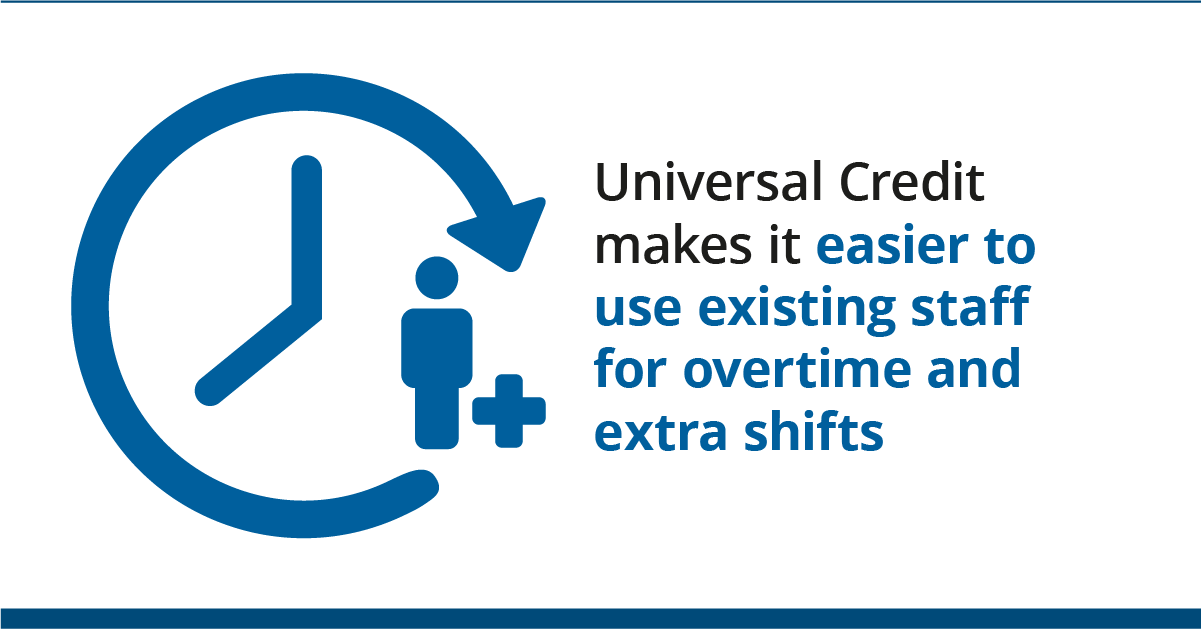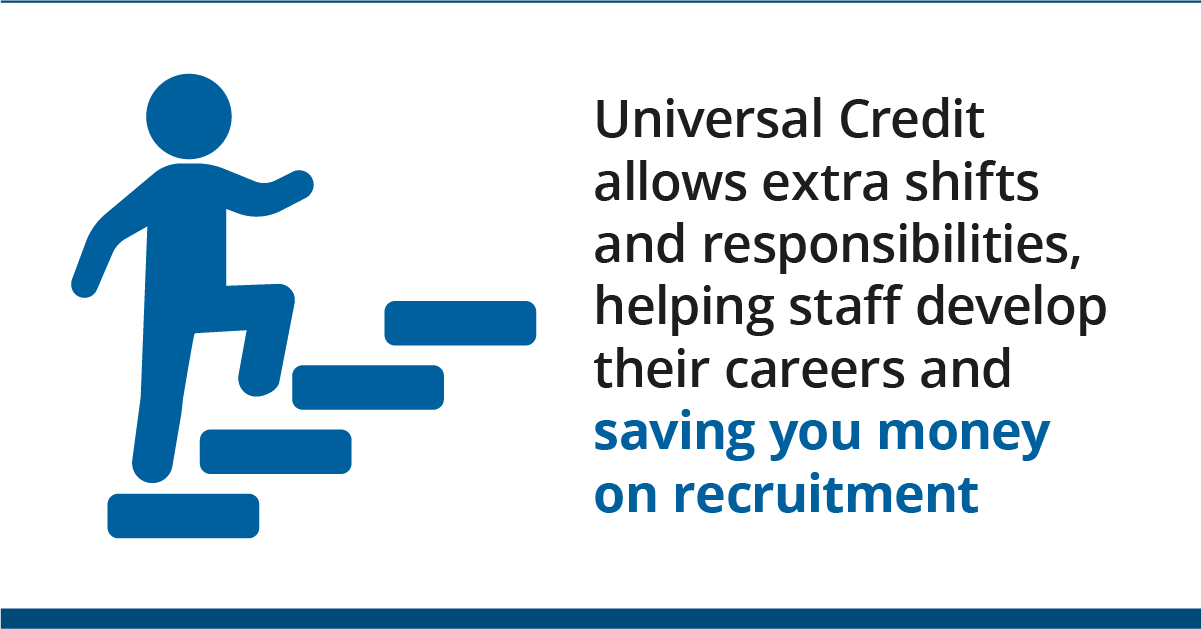3. How Universal Credit works
This section provides an overview of the features of Universal Credit that are of most relevance to employers. For more detail about specific elements, or to find out how Universal Credit works from your employees’ perspective, see the New to Universal Credit section.
How earnings affect Universal Credit payments
The amount of Universal Credit that your employees receive depends on their individual circumstances. It can include help with housing costs and childcare. It is usually paid once a month, and the exact amount is calculated every calendar month.
People may continue to receive Universal Credit even when they are in work, depending on their earnings. The amount of Universal Credit they get will automatically respond to changes in their earnings. It is calculated based on their take home pay, after tax and other deductions.
Depending on their circumstances, some people will be able to earn a certain amount without it affecting their Universal Credit payments at all. This amount is called a Work Allowance
If someone has a Work Allowance, for every £1 they earn above that amount, their Universal Credit payment will be reduced by 63p. If they don’t have a Work Allowance, this will apply to all of their earnings.
If someone earns enough to no longer receive Universal Credit, their claim will be paused automatically. If their earnings go down in a subsequent month, it is easy for them to re-start their Universal Credit claim. Their claim will only stop entirely if they have received no Universal Credit payments for 6 months.
There are no limits to the number of hours people can work and still receive Universal Credit – the only thing that affects their Universal Credit payment is the amount they earn.

Additional pay
Universal Credit makes it easier for people to accept overtime or additional hours, because earning more won’t mean that they need to stop their benefit claim.
Bonuses will be taken into account when working out someone’s Universal Credit payment. If someone receives a very large bonus or earns much more than usual in one month this may also affect their Universal Credit payments in later months. This is known as surplus earnings
It will always be worth someone’s while to accept additional work or bonuses as their Universal Credit payment will always be reduced by less than their extra earnings.
Reporting earnings
The existing PAYE real-time information you provide to HMRC is used to calculate the Universal Credit payment. This means there are no additional business administration costs.
Pay cycles
Universal Credit is paid each calendar month. Claimants are paid on the same day each month – if their first payment was on 7 March they will always be paid on the 7th of the month. If this falls on a weekend or bank holiday they will be paid on the last working day before that date.
There may be times when some employees have an extra payday from work during a calendar month. For example, if your employee is paid every 2 weeks, they will usually get 2 payments from earnings in a month. But because calendar months are longer than 4 weeks, sometimes they will get 3 payments from earnings in a single month.
In these months their earnings will be higher than usual, and this could result in their Universal Credit payment being reduced for that month. It may be the case that their extra payment means they earn enough that month to receive no Universal Credit payment at all.
If the smaller Universal Credit payment means they are having trouble paying their bills and household expenses, they can speak to their work coach or call the Universal Credit helpline to talk about the help that may be available.
What is expected of claimants
If someone is working and still receiving Universal Credit payments they may be asked to increase their hours, look for ways to progress in their current workplace, or search for additional work with a different employer.
You may find that your employees want to discuss how they can increase their earnings. You may wish to consider how you might respond to such a request. If you aren’t able to give them opportunities to increase their earnings they may need to look for work elsewhere.
In some cases Universal Credit claimants may contact their work coach at the jobcentre for support, and this may result in them being invited to attend a meeting at the jobcentre. These meetings will focus on supporting the claimant to help increase their earnings. No-one will be required to attend a meeting at a jobcentre at a time when they should be at work.

Moving from tax credits to Universal Credit
If someone is claiming tax credits but has a change of circumstances, this could mean that they are no longer able to claim tax credits and will claim Universal Credit instead.
In time, tax credits will no longer be available and people will claim Universal Credit instead. Tax credit claimants will be given plenty of notice before this change takes place.
There’s more information about what Universal Credit will mean for your organisation and employees in Universal Credit and employers: frequently asked questions
